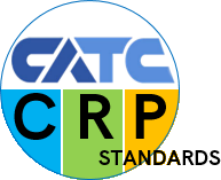12 Career Ready Practices
CRP Introducation
Culture / Environment
 CRP-MS.05 | CRP-HS.05 Culture / Environment
CRP-MS.05 | CRP-HS.05 Culture / Environment
Consider the Environmental, Social, and Economic Impacts of Decisions
Career-ready individuals understand the
interrelated nature of their actions and regularly make decisions that
positively impact and/or mitigate negative impact on other people, organizations and the environment. They are aware of and utilize new technologies,
understandings, procedures, materials, and regulations affecting the
nature of their work as it relates to the impact on the social condition,
the environment, and profitability of the organization.
1
Not Yet Reached
Competency
2
Approaching
Competency
3
Meets
Competency
4
Exceeds
Competency
 Valuing diversity
Valuing diversity
Respond open - mindedly to different ideas and values.
| CRP-MS.05.01 CRP-HS.05.01 |
Differences and diverse opinions are rejected and/or ignored and sometimes result in arguments.
Different ideas and diverse opinions are sometimes ignored however when acknowledged can be resolved.
Different ideas and diverse opinions are accepted.
Different ideas are appreciated and diverse opinions are sought out while developing a common understanding.
 Communicating on environment
Communicating on environment
-Communicate effectively in diverse environments and realize the impact that environment will have on decisions made.
| CRP-MS.05.02 CRP-HS.05.02 |
Fails to communicate or understand the interactions of diverse environments.
Communicates with others about environment, but often fails to understand the influences of the environment.
Communicates with others on environments while understanding the influences of the environment.
Communicates effectively with others on diverse environments, understanding fully the influences of the environment.
 Verbalizing culture
Verbalizing culture
Understand and effectively utilize the most appropriate expressions and interpretations in multi-cultural situations.
| CRP-MS.05.03 CRP-HS.05.03 |
Disregards cultural differences and does not effectively communicate any lack of understand.
Understands there are cultural differences, but does not effectively communicate.
Understands and effectively uses proper verbal and non-verbal communication in respect to cultural differences.
Consistently communicates both verbally and non- verbally, with a deep understanding and respect of cultural differences.
 Respecting culture w/action
Respecting culture w/action
Realize the interrelated nature of their actions to themselves, others, and business, utilizing the most appropriate and interpretations in diverse, multi-cultural environments.
| CRP-MS.05.04 CRP-HS.05.04 |
Disregards cultural differences and does not effectively act in a diverse environment.
Understands there are cultural differences, but does not effectively act in a diverse environment.
Acts effectively in respect to cultural differences and how they affect decisions made.
Consistently acts with deep understanding and respect of cultural differences and the ultimate outcomes of those actions.
 Acting realistically
Acting realistically
Demonstrate understanding to the real world limits of adopting new ideas.
| CRP-MS.05.05 CRP-HS.05.05 |
Does not demonstrate a grasp of real world limits to new ideas.
Demonstrates understanding of desired outcome but does not have a realistic understanding of the limits of the situation.
Demonstrates realistic understanding about the limits of the situation.
Consistently demonstrates realistic understanding about the limits of the situation in a variety of scenarios.
 Understand structure / scope
Understand structure / scope
Demonstrate understanding of workplace organizations, systems, and climates by identifying “big picture” issues and fulfilling the mission of the workplace.
| CRP-MS.05.06 CRP-HS.05.06 |
Does not acknowledge social relationships that impact multiple levels of an organization.
Acknowledges some social relationships that impact multiple levels of an organization.
Acknowledges the economic, political, and social relationships that impact multiple levels of an organization (e.g., local, national, international).
Consistently acknowledges the economic, political, and social relationships that impact multiple levels of an organization and uses this knowledge in interaction within the group (e.g., local, national, international).
